- Home
- George R. R. Martin
Rogues Page 3
Rogues Read online
Page 3
But then, Friendly supposed he was no better.
… four, three, two, one, and down the twelve steps, past the three guards, and through the double doors into the Quarryman’s place.
It was hazy with smoke inside, confusing with the light of colored lamps, hot with breath and chafing skin, thick with the babble of hushed conversation, of secrets traded, reputations ruined, confidences betrayed. It was as all such places always are.
Two Northmen were wedged behind a table in the corner. One, with sharp teeth and long, lank hair, had tipped his chair all the way back and was slumped in it, smoking. The other had a bottle in one hand and a tiny book in the other, staring at it with brow well furrowed.
Most of the patrons Friendly knew by sight. Regulars. Some came to drink. Some to eat. Most of them fixed on the games of chance. The clatter of dice, the twitch and flap of the playing cards, the eyes of the hopeless glittering as the lucky wheel span.
The games were not really the Quarryman’s business, but the games made debts, and debts were the Quarryman’s business. Up the twenty-three steps to the raised area, the guard with the tattoo on his face waving Friendly past.
Three of the other collectors were seated there, sharing a bottle. The smallest grinned at him and nodded, perhaps trying to plant the seeds of an alliance. The biggest puffed himself up and bristled, sensing competition. Friendly ignored them equally. He had long ago given up trying even to understand the unsolvable mathematics of human relationships, let alone to participate. Should that man do more than bristle, Friendly’s cleaver would speak for him. That was a voice that cut short even the most tedious of arguments.
Mistress Borfero was a fleshy woman with dark curls spilling from beneath a purple cap, small eyeglasses that made her eyes seem large, and a smell about her of lamp oil. She haunted the anteroom before the Quarryman’s office at a low desk stacked with ledgers. On Friendly’s first day, she had gestured toward the ornate door behind her and said, “I am the Quarryman’s right hand. He is never to be disturbed. Never. You speak to me.”
Friendly, of course, knew as soon as he saw her mastery of the numbers in those books that there was no one in the office and that Borfero was the Quarryman, but she seemed so pleased with the deception that he was happy to play along. Friendly had never liked to rock boats unnecessarily. That’s how people end up drowned. Besides, it somehow helped to imagine that the orders came from somewhere else, somewhere unknowable and irresistible. It was nice to have an attic in which to stack the blame. Friendly looked at the door of the Quarryman’s office, wondering if there was an office, or if it opened on blank stones.
“What was today’s take?” she asked, flipping open a ledger and dipping her pen. Straight to business without so much as a how do you do. He greatly liked and admired that about her though he would never have said so. His compliments had a way of causing offense.
Friendly slipped the coins out in stacks, then let them drop, one by one, in rattling rows by debtor and denomination. Mostly base metals, leavened with a sprinkling of silver.
Borfero sat forward, wrinkling her nose and pushing her eyeglasses up onto her forehead, eyes seeming now extra small without them.
“A sword, as well,” said Friendly, leaning it up against the side of the desk.
“A disappointing harvest,” she murmured.
“The soil is stony hereabouts.”
“Too true.” She dropped the eyeglasses back and started to scratch orderly figures in her ledger. “Tough times all over.” She often said that. As though it stood as explanation and excuse for anything and everything.
“Kurtis dan Broya asked me when the debt would be paid.”
She peered up, surprised by the question. “When the Quarryman says it’s paid.”
“ ‘That’s what I told him.”
“Good.”
“You asked me to be on the lookout for … a package.” Friendly placed it on the desk before her. “Broya had it.”
It did not seem so very important. It was less than a foot long, wrapped in very ancient stained and balding animal skin, and with a letter, or perhaps a number, burned into it with a brand. But not a number that Friendly recognized.
Mistress Borfero snatched up the package, then immediately cursed herself for seeming too eager. She knew no one could be trusted in this business. That brought a rush of questions to her mind. Suspicions. How could that worthless Broya possibly have come by it? Was this some ruse? Was Friendly a plant of the Gurkish? Or perhaps of Carcolf’s? A double bluff? There was no end to the webs that smug bitch spun. A triple bluff? But where was the angle? Where the advantage?
A quadruple bluff?
Friendly’s face betrayed no trace of greed, no trace of ambition, no trace of anything. He was without doubt a strange fellow but came highly recommended. He seemed all business, and she liked that in a man though she would never have said so. A manager must maintain a certain detachment.
Sometimes things are just what they seem. Borfero had seen strange chances enough in her life.
“This could be it,” she mused, though, in fact, she was immediately sure. She was not a woman to waste time on possibilities.
Friendly nodded.
“You have done well,” she said.
He nodded again.
“The Quarryman will want you to have a bonus.” Be generous with your own people, she had always said, or others will be.
But generosity brought no response from Friendly.
“A woman, perhaps?”
He looked a little pained by that suggestion. “No.”
“A man?”
And that one. “No.”
“Husk? A bottle of—”
“No.”
“There must be something.”
He shrugged.
Mistress Borfero puffed out her cheeks. Everything she had she’d made by tickling out people’s desires. She was not sure what to do with a person who had none. “Well, why don’t you think about it?”
Friendly slowly nodded. “I will think.”
“Did you see two Northmen drinking on your way in?”
“I saw two Northmen. One was reading a book.”
“Really? A book?”
Friendly shrugged. “There are readers everywhere.”
She swept through the place, noting the disappointing lack of wealthy custom and estimating just how dismal this evening’s profits were like to be. If one of the Northmen had been reading, he had given up. Deep was drinking some of her best wine straight from the bottle. Three others lay scattered, empty, beneath the table. Shallow was smoking a chagga pipe, the air thick with the stink of it. Borfero did not allow it normally, but she was obliged to make an exception for these two. Why the bank chose to employ such repugnant specimens she had not the slightest notion. But she supposed rich people need not explain themselves.
“Gentlemen,” she said, insinuating herself into a chair.
“Where?” Shallow gave a croaky laugh. Deep slowly tipped his bottle up and eyed his brother over the neck with sour disdain.
Borfero continued in her business voice, soft and reasonable. “You said your … employers would be most grateful if I came upon … that certain item you mentioned.”
The two Northmen perked up, both leaning forward as though drawn by the same string, Shallow’s boot catching an empty bottle and sending it rolling in an arc across the floor.
“Greatly grateful,” said Deep.
“And how much of my debt would their gratitude stretch around?”
“All of it.”
Borfero felt her skin tingling. Freedom. Could it really be? In her pocket, even now? But she could not let the size of the stakes make her careless. The greater the payoff, the greater the caution. “My debt would be finished?”
Shallow leaned close, drawing the stem of his pipe across his stubbled throat. “Killed,” he said.
“Murdered,” growled his brother, suddenly no farther off on the other side.
“Course.” Shallow did not so much smile as show his sharp teeth. “Don’t reckon your regards’ll mean much to them, though.”
“Don’t take it personally, eh?” Deep did not smile. “Our employers just don’t care much for regards.”
Borfero took a sharp breath. “Tough times all over.”
“Ain’t they, though?” and Deep stood, and swept the package up in one big paw.
The cool air caught Deep like a slap as they stepped out into the evening. Sipani, none too pleasant when it was still, had a decided spin to it of a sudden.
“I have to confess,” he said, clearing his throat and spitting, “to being somewhat on the drunk side of drunk.”
“Aye,” said Shallow, burping as he squinted into the mist. At least that was clearing somewhat. As clear as it got in this murky hell of a place. “Probably not the bestest notion while at work, mind you.”
“You’re right.” Deep held the baggage up to such light as there was. “But who expected this to just drop in our laps?”
“Not I, for one.” Shallow frowned. “Or for … not one?”
“It was meant to be just a tipple,” said Deep.
“One tipple does have a habit of making itself into several.” Shallow wedged on that stupid bloody hat. “A little stroll over to the bank, then?”
“That hat makes you look a fucking dunce.”
“You, brother, are obsessed with appearances.”
Deep passed that off with a long hiss.
“They really going to score out that woman’s debts, d’you think?”
“For now, maybe. But you know how they are. Once you owe, you always owe.” Deep spat again, and, now that the alley was a tad steadier, tottered off with the baggage clutched tight in his hand. No chance he was putting it in a pocket where some little scab could lift it. Sipani was full of thieving bastards. He’d had his good socks stolen last time he was here, and worked up an unpleasant pair of blisters on the trip home. Who steals socks? Styrian bastards. He’d keep a good firm grip on it. Let the little fuckers try to take it then.
“Now who’s the dunce?” Shallow called after him. “The bank’s this way.”
“Only we ain’t going to the bank, dunce,” snapped Deep over his shoulder. “We’re to toss it down a well in an old court just about the corner here.”
Shallow hurried to catch up. “We are?”
“No, I just said it for the laugh, y’idiot.”
“Why down a well?”
“Because that’s how he wanted it done.”
“Who wanted it done?”
“The boss.”
“The little boss, or the big boss?”
Even drunk as Deep was, he felt the need to lower his voice. “The bald boss.”
“Shit,” breathed Shallow. “In person?”
“In person.”
A short pause. “How was that?”
“It was even more than usually terrifying, thanks for reminding me.”
A long pause, with just the sound of their boots on the wet cobbles. Then Shallow said, “We better hadn’t do no fucking up of this.”
“My heartfelt thanks,” said Deep, “for that piercing insight. Fucking up is always to be avoided when and wherever possible, wouldn’t you say?”
“Y’always aim to avoid it, of course you do, but sometimes you run into it anyway. What I’m saying here is, we’d best not run into it.” Shallow dropped his voice to a whisper. “You know what the bald boss said last time.”
“You don’t have to whisper. He ain’t here, is he?”
Shallow looked wildly around. “I don’t know. Is he?”
“No he ain’t.” Deep rubbed at his temples. One day he’d kill his brother, that was a foregone conclusion. “That’s what I’m saying.”
“What if he was, though? Best to always act like he might be.”
“Can you shut your mouth just for a fucking instant?” Deep caught Shallow by the arm and stabbed the baggage in his face. “It’s like talking to a bloody—” He was greatly surprised when a dark shape whisked between them and he found his hand was suddenly empty.
Kiam ran like her life depended on it. Which it did, o’ course.
“Get after him, damn it!” She heard the two Northmen flapping and crashing and blundering down the alley behind, and nowhere near far enough behind for her taste.
“It’s a girl, y’idiot!” Big and clumsy but fast they were coming, boots hammering and hands clutching, and if they once caught ahold of her …
“Who fucking cares? Get the thing back!” And her breath hissing and her heart pounding and her muscles burning as she ran.
She skittered around a corner, rag-wrapped feet sticking to the damp cobbles, the way wider, lamps and torches making muddy smears in the mist and people busy everywhere. She ducked and weaved, around them, between them, faces looming up and gone. The Blackside night market, stalls and shoppers and the cries of the traders, full of noise and smells and tight with bustle. Kiam slithered between the wheels of a wagon, limber as a ferret, plunged between buyer and seller in a shower of fruit, then slithered across a stall laden with slimy fish while the trader shouted and snatched at her, caught nothing but air. She stuck one foot in a basket and was off, kicking cockles across the street. Still she heard the yells and growls as the Northmen knocked folk flying in her wake, crashes as they flung the carts aside, as though a mindless storm were ripping apart the market behind her. She dived between the legs of a big man, rounded another corner, and took the greasy steps two at a time, along the narrow path by the slopping water, rats squeaking in the rubbish and the sounds of the Northmen now loud, louder, cursing her and each other. Her breath whooping and cutting in her chest and running desperate, water spattering and spraying around her with every echoing footfall.
“We’ve got her!” the voice so close at her heels. “Come here!”
She darted through that little hole in the rusted grate, a sharp tooth of metal leaving a burning cut down her arm, and for once she was plenty glad that Old Green never gave her enough to eat. She kicked her way back into the darkness, keeping low, lay there clutching the package and struggling to get her breath. Then they were there, one of the Northmen dragging at the grating, knuckles white with force, flecks of rust showering down as it shifted, and Kiam stared and wondered what those hands would do to her if they got their dirty nails into her skin.
The other one shoved his bearded face in the gap, a wicked-looking knife in his hand, not that someone you just robbed ever has a nice-looking knife. His eyes popped out at her and his scabbed lips curled back and he snarled, “Chuck us that baggage and we’ll forget all about it. Chuck us it now!”
Kiam kicked away, the grate squealing as it bent. “You’re fucking dead, you little piss! We’ll find you, don’t worry about that!” She slithered off, through the dust and rot, wriggled through a crack between crumbling walls. “We’ll be coming for you!” echoed from behind her. Maybe they would be as well, but a thief can’t spend too much time worrying about tomorrow. Today’s shitty enough. She whipped her coat off and pulled it inside out to show the faded green lining, stuffed her cap in her pocket and shook her hair out long, then slipped onto the walkway beside the Fifth Canal, walking fast, head down.
A pleasure boat drifted past, all chatter and laughter and clinking of glass, people moving tall and lazy on board, strange as ghosts seen through that mist, and Kiam wondered what they’d done to deserve that life and what she’d done to deserve this, but there never were no easy answers to that question. As it took its pink lights away into the fog she heard the music of Hove’s violin. Stood a moment in the shadows, listening, thinking how bea
utiful it sounded. She looked down at the package. Didn’t look much for all this trouble. Didn’t weigh much, even. But it weren’t up to her what Old Green put a price on. She wiped her nose and walked along close to the wall, music getting louder, then she saw Hove’s back and his bow moving, and she slipped behind him and let the package fall into his gaping pocket.
Hove didn’t feel the drop, but he felt the three little taps on his back, and he felt the weight in his coat as he moved. He didn’t see who made the drop and he didn’t look. He just carried on fiddling, that Union march with which he’d opened every show during his time on the stage in Adua, or under the stage, at any rate, warming up the crowd for Lestek’s big entrance. Before his wife died and everything went to shit. Those jaunty notes reminded him of times past, and he felt tears prickling in his sore eyes, so he switched to a melancholy minuet more suited to his mood, not that most folk around here could’ve told the difference. Sipani liked to present itself as a place of culture, but the majority were drunks and cheats and boorish thugs, or varying combinations thereof.
How had it come to this, eh? The usual refrain. He drifted across the street like he’d nothing in mind but a coin for his music, letting the notes spill out into the murk. Across past the pie stall, the fragrance of cheap meat making his stomach grumble, and he stopped playing to offer out his cap to the queue. There were no takers, no surprise, so he headed on down the road to Verscetti’s, dancing in and out of the tables on the street and sawing out an Osprian waltz, grinning at the patrons who lounged there with a pipe or a bottle, twiddling thin glass stems between gloved fingertips, eyes leaking contempt through the slots in their mirror-crusted masks. Jervi was sat near the wall, as always, a woman in the chair opposite, hair piled high.
“A little music, darling?” Hove croaked out, leaning over her and letting his coat dangle near Jervi’s lap.
Jervi slid something out of Hove’s pocket, wrinkling his nose at the smell of the old soak, and said, “Fuck off, why don’t you?” Hove moved on and took his horrible music with him, thank the Fates.

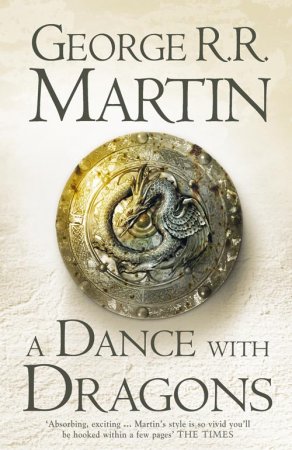 A Dance with Dragons
A Dance with Dragons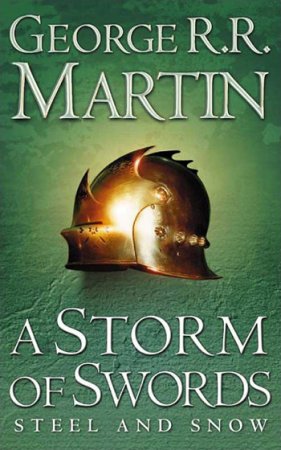 A Storm of Swords
A Storm of Swords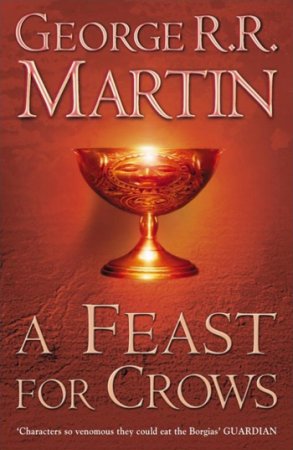 A Feast for Crows
A Feast for Crows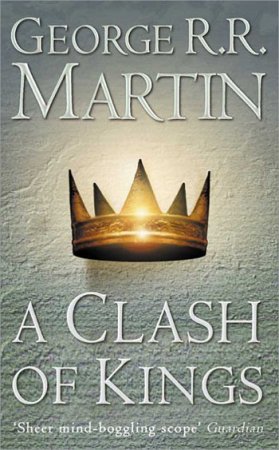 A Clash of Kings
A Clash of Kings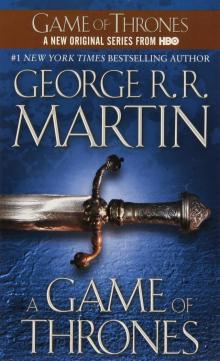 A Game of Thrones
A Game of Thrones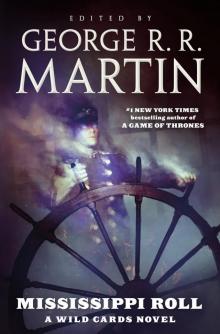 Mississippi Roll
Mississippi Roll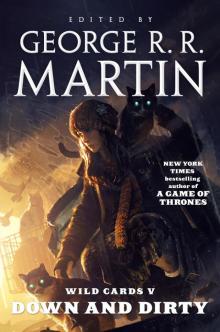 Wild Cards V: Down and Dirty
Wild Cards V: Down and Dirty Busted Flush
Busted Flush When the Devil Drives
When the Devil Drives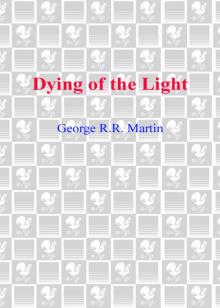 Dying of the Light
Dying of the Light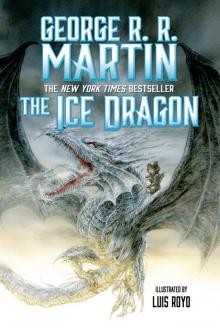 The Ice Dragon
The Ice Dragon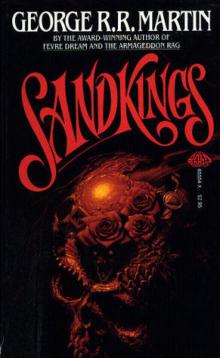 Sandkings
Sandkings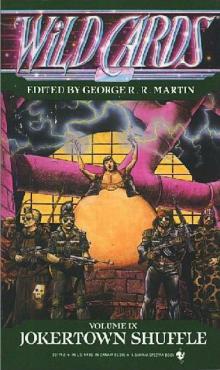 Jokertown Shuffle
Jokertown Shuffle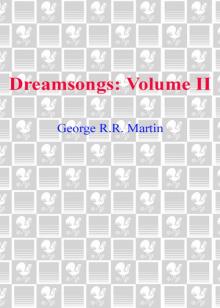 Dreamsongs. Volume II
Dreamsongs. Volume II Deuces Down
Deuces Down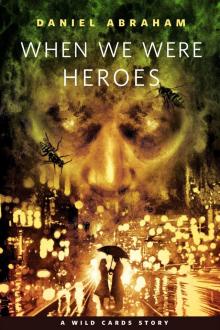 When We Were Heroes
When We Were Heroes Warriors
Warriors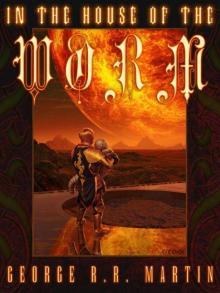 In the House of the Worm
In the House of the Worm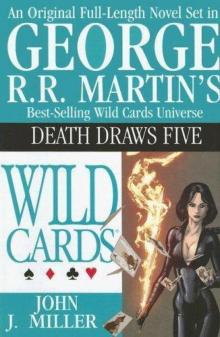 Death Draws Five
Death Draws Five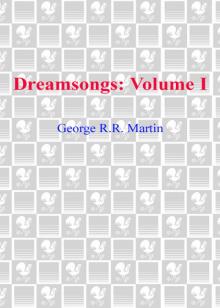 Dreamsongs. Volume I
Dreamsongs. Volume I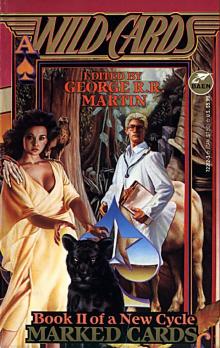 Marked Cards
Marked Cards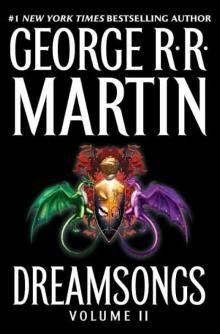 Dreamsongs
Dreamsongs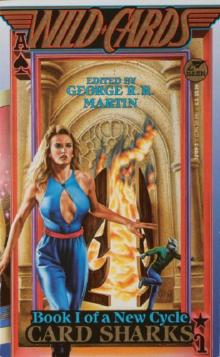 Card Sharks
Card Sharks Dangerous Women
Dangerous Women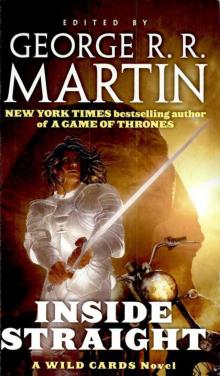 Inside Straight
Inside Straight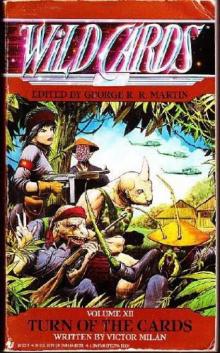 Turn of the Cards
Turn of the Cards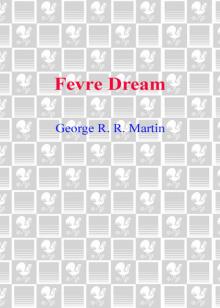 Fevre Dream
Fevre Dream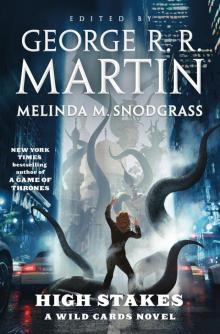 High Stakes: A Wild Cards Novel
High Stakes: A Wild Cards Novel Windhaven
Windhaven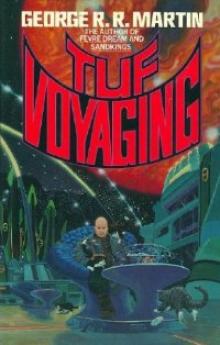 Tuf Voyaging
Tuf Voyaging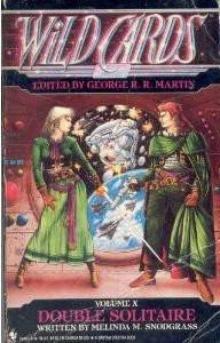 Double Solitaire
Double Solitaire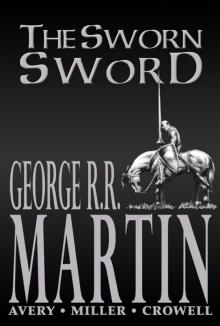 The Sworn Sword
The Sworn Sword Low Chicago
Low Chicago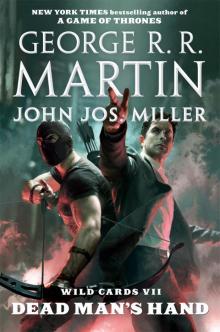 Dead Man's Hand
Dead Man's Hand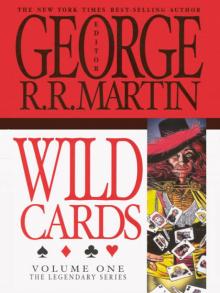 Wild Cards
Wild Cards Black Trump
Black Trump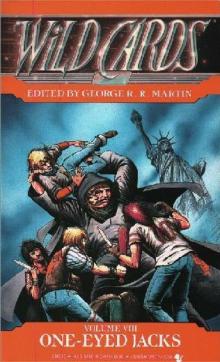 One Eyed Jacks
One Eyed Jacks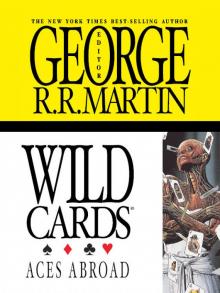 Wild Cards: Aces Abroad
Wild Cards: Aces Abroad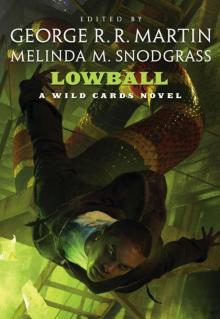 Lowball: A Wild Cards Novel
Lowball: A Wild Cards Novel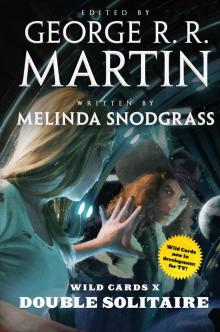 Double Solitaire (2019 Edition)
Double Solitaire (2019 Edition)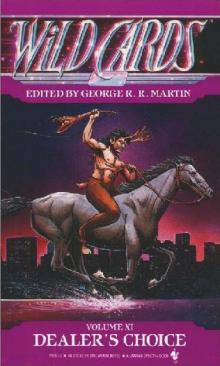 Dealer's Choice
Dealer's Choice Ace in the Hole
Ace in the Hole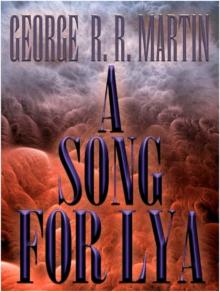 A Song for Lya: And Other Stories
A Song for Lya: And Other Stories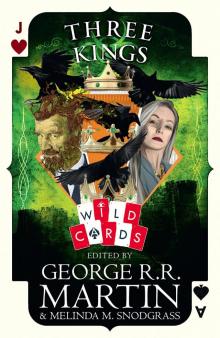 Three Kings
Three Kings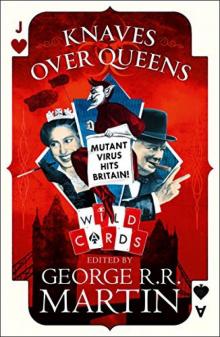 Knaves Over Queens
Knaves Over Queens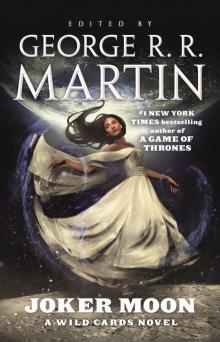 Joker Moon
Joker Moon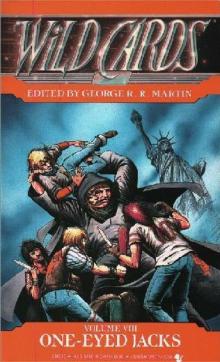 One Eyed Jacks wc-8
One Eyed Jacks wc-8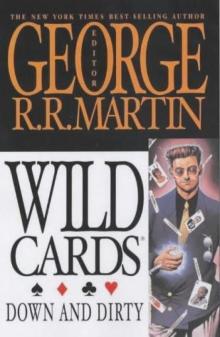 Down And Dirty wc-5
Down And Dirty wc-5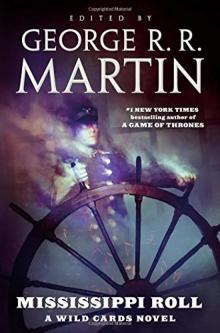 Mississippi Roll_A Wild Cards Novel
Mississippi Roll_A Wild Cards Novel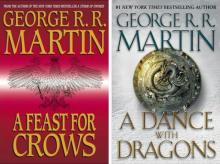 A Feast for Dragons
A Feast for Dragons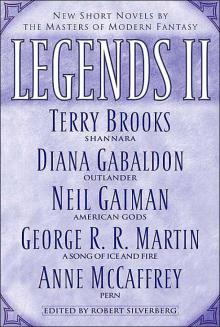 The Sworn Sword ttodae-2
The Sworn Sword ttodae-2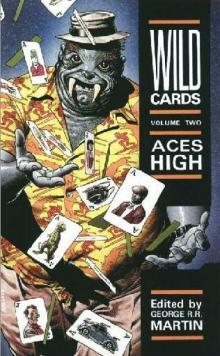 Aces High wc-2
Aces High wc-2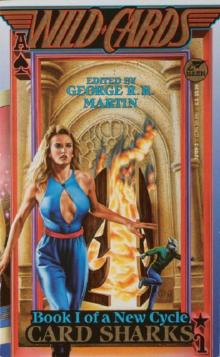 Wild Cards 13 : Card Sharks
Wild Cards 13 : Card Sharks Way of the Wizard
Way of the Wizard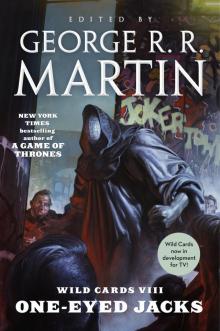 Wild Cards VIII: One-Eyed Jacks
Wild Cards VIII: One-Eyed Jacks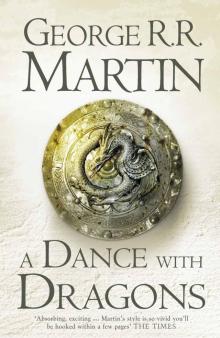 A Dance With Dragons: Book 5 of A Song of Ice and Fire (Song of Ice & Fire 5)
A Dance With Dragons: Book 5 of A Song of Ice and Fire (Song of Ice & Fire 5) The Princess and The Queen, Or, The Blacks and The Greens (a song of ice and fire)
The Princess and The Queen, Or, The Blacks and The Greens (a song of ice and fire)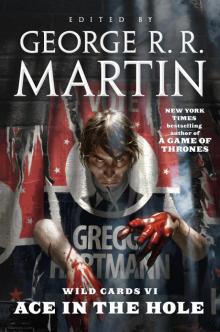 Wild Cards VI--Ace in the Hole
Wild Cards VI--Ace in the Hole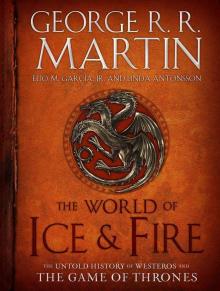 The World of Ice & Fire: The Untold History of Westeros and the Game of Thrones (A Song of Ice and Fire)
The World of Ice & Fire: The Untold History of Westeros and the Game of Thrones (A Song of Ice and Fire)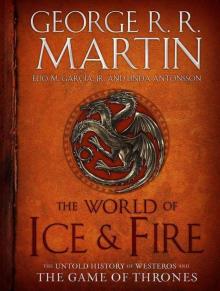 The World of Ice & Fire: The Untold History of Westeros and the Game of Thrones
The World of Ice & Fire: The Untold History of Westeros and the Game of Thrones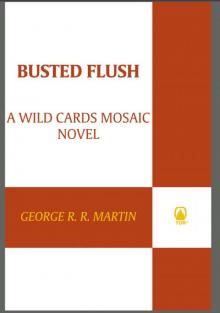 Busted Flush wc-19
Busted Flush wc-19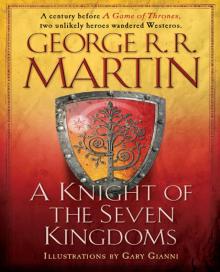 A Knight of the Seven Kingdoms
A Knight of the Seven Kingdoms Nightflyers: The Illustrated Edition
Nightflyers: The Illustrated Edition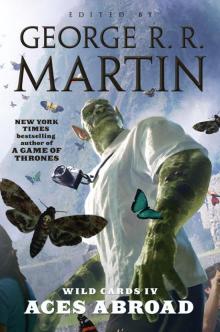 Wild Cards IV
Wild Cards IV Portraits of His Children
Portraits of His Children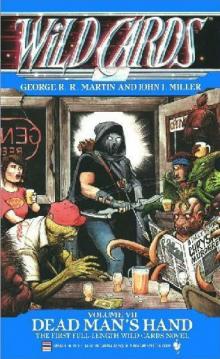 Dead Mans Hand wc-7
Dead Mans Hand wc-7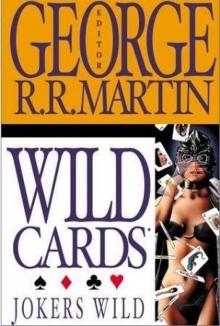 Jokers Wild wc-3
Jokers Wild wc-3 The Lonely Songs of Laren Dorr
The Lonely Songs of Laren Dorr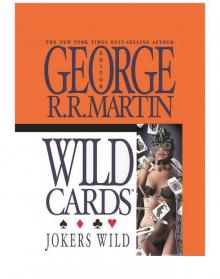 Wild Cards III: Jokers Wild
Wild Cards III: Jokers Wild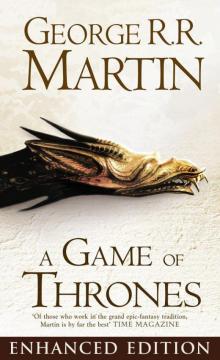 A Game of Thrones Enhanced Edition
A Game of Thrones Enhanced Edition Nightflyers & Other Stories
Nightflyers & Other Stories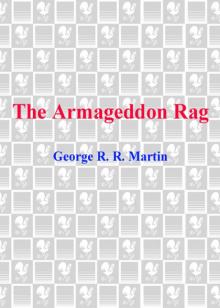 Armageddon Rag
Armageddon Rag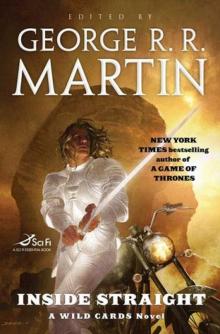 Wild Cards: Inside Straight
Wild Cards: Inside Straight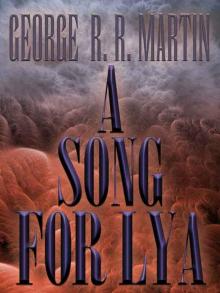 A Song for Lya
A Song for Lya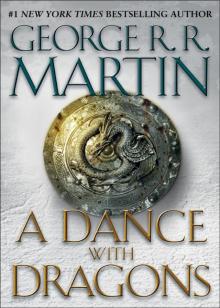 A Dance with Dragons: A Song of Ice and Fire: Book Five
A Dance with Dragons: A Song of Ice and Fire: Book Five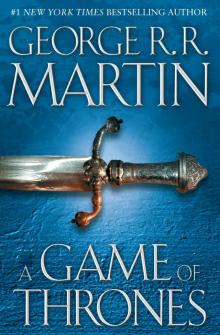 Song of Fire & Ice 01 - A Game of Thrones
Song of Fire & Ice 01 - A Game of Thrones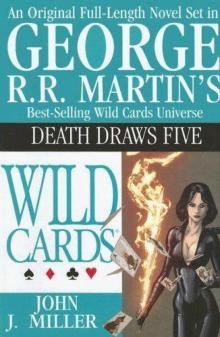 Death Draws Five wc-17
Death Draws Five wc-17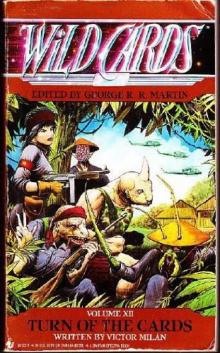 Turn of the Cards w-12
Turn of the Cards w-12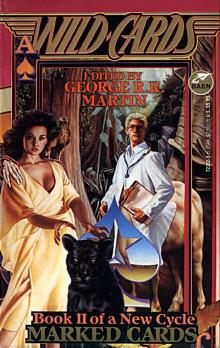 Wild Cards 14 - Marked Cards
Wild Cards 14 - Marked Cards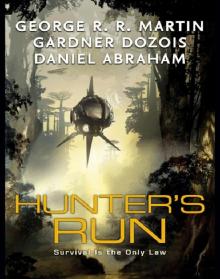 Hunter's Run
Hunter's Run The Glass Flower
The Glass Flower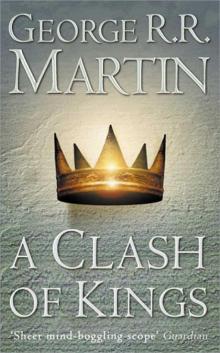 A Clash of Kings asoiaf-2
A Clash of Kings asoiaf-2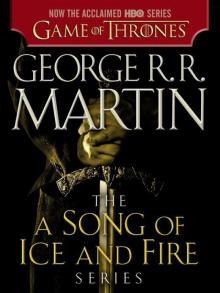 A Game of Thrones 5-Book Bundle: A Song of Ice and Fire Series: A Game of Thrones, A Clash of Kings, A Storm of Swords, A Feast for Crows, and A Dance with Dragons (Song of Ice & Fire)
A Game of Thrones 5-Book Bundle: A Song of Ice and Fire Series: A Game of Thrones, A Clash of Kings, A Storm of Swords, A Feast for Crows, and A Dance with Dragons (Song of Ice & Fire)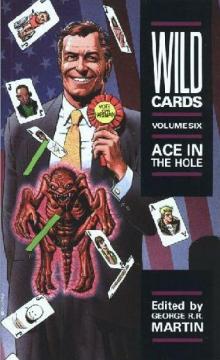 Ace In The Hole wc-6
Ace In The Hole wc-6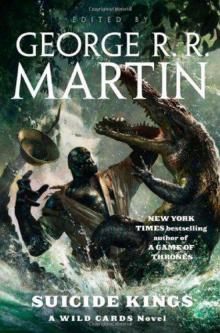 Suicide Kings wc-20
Suicide Kings wc-20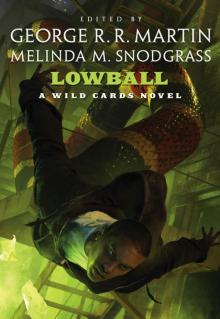 Lowball
Lowball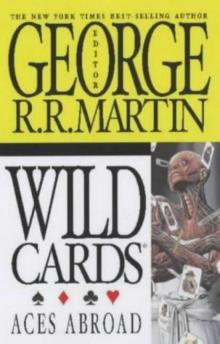 Aces Abroad wc-4
Aces Abroad wc-4 George R. R. Martin's a Game of Thrones 4-Book Bundle
George R. R. Martin's a Game of Thrones 4-Book Bundle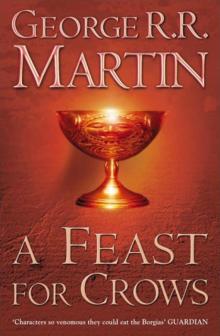 A Feast for Crows asoiaf-4
A Feast for Crows asoiaf-4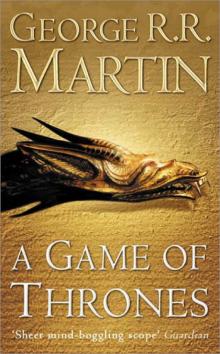 A Game of Thrones asoiaf-1
A Game of Thrones asoiaf-1 The Mystery Knight ttodae-3
The Mystery Knight ttodae-3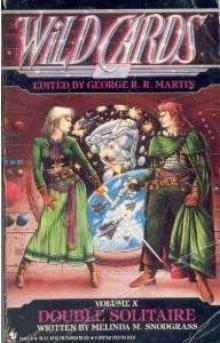 Double Solitaire w-10
Double Solitaire w-10 Wild Cards 15 - Black Trump
Wild Cards 15 - Black Trump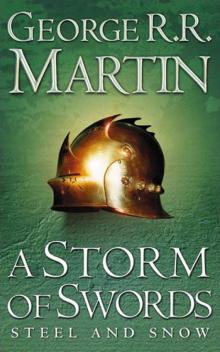 A Storm of Swords asoiaf-3
A Storm of Swords asoiaf-3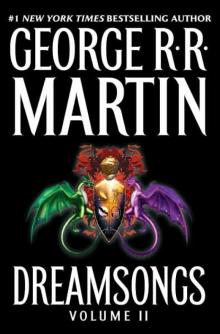 The Hedge Knight ttodae-1
The Hedge Knight ttodae-1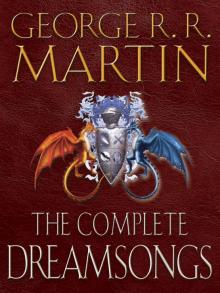 Dreamsongs 2-Book Bundle
Dreamsongs 2-Book Bundle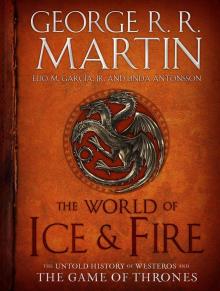 The World of Ice & Fire
The World of Ice & Fire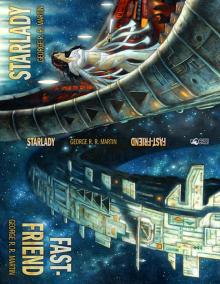 Starlady & Fast-Friend
Starlady & Fast-Friend Old Mars
Old Mars Fantasy For Good: A Charitable Anthology
Fantasy For Good: A Charitable Anthology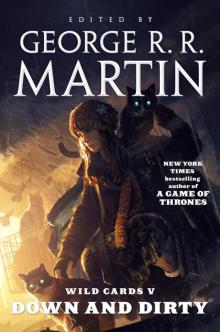 Wild Cards V
Wild Cards V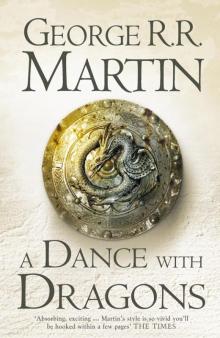 A Dance with Dragons asoiaf-5
A Dance with Dragons asoiaf-5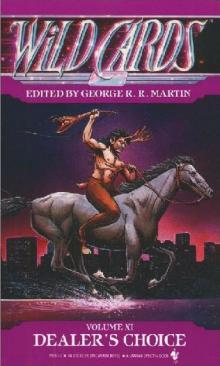 Dealer's Choice w-11
Dealer's Choice w-11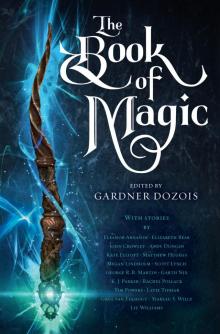 The Book of Magic
The Book of Magic A Game of Thrones 4-Book Bundle
A Game of Thrones 4-Book Bundle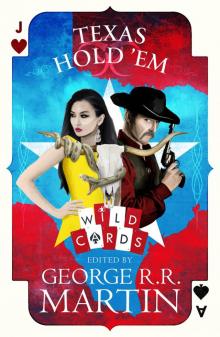 Texas Hold 'Em
Texas Hold 'Em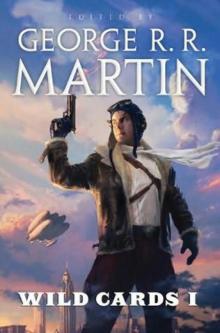 Wildcards wc-1
Wildcards wc-1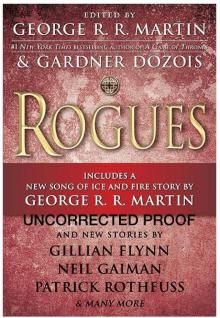 Rogues
Rogues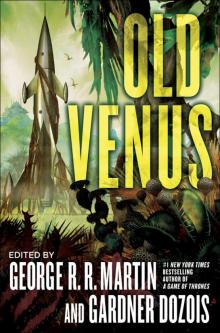 Old Venus
Old Venus